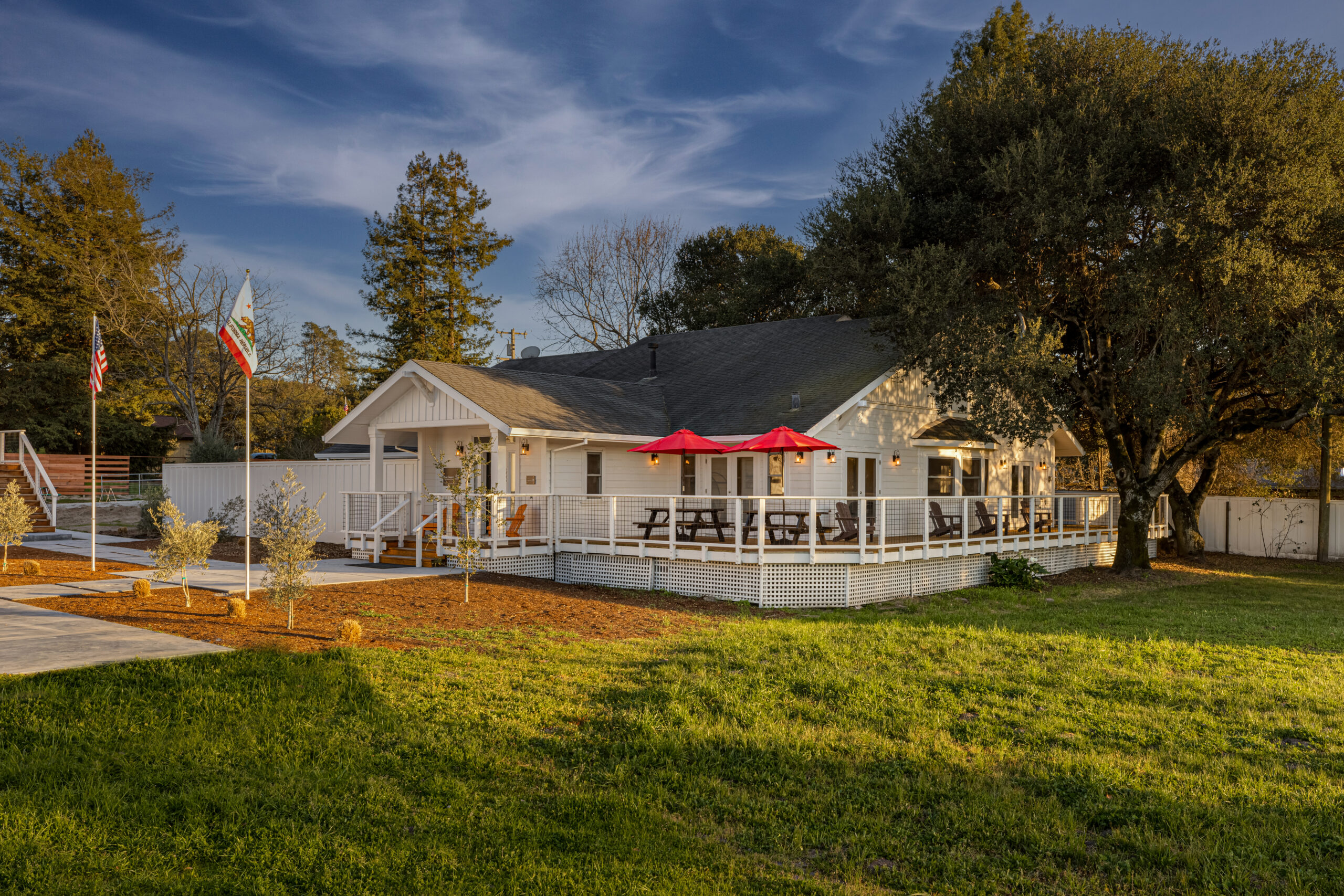For teen boys who struggle with mental health and substance use disorders, residential treatment can be a life-changing experience. Emotional instability can often manifest in teens self-medicating with alcohol, prescription drugs, street drugs, or other substances. In many cases, the long-term effects of substance use can be devastating.
We can help. The boys residential treatment programs at Muir Wood are designed to treat substance use and the underlying mental health issues that can lead to destructive behavior. We treat co-occurring issues such as anxiety, depression, trauma, and PTSD. Learn more about why we believe in an integrated treatment approach.
Our residential programs for teens take place at campuses across California. Each location features unique natural beauty that fosters tranquility and mental wellbring. For boys entering dual-diagnosis treatment, we offer the following treatment centers:
When to Seek Residential Treatment
Behavioral issues in teen boys can often be difficult to diagnose without proper mental health experience and training. We also recognize the distress for parents and children from juggling emotional support with the behavioral discipline that fosters a safe, healthy environment. If your teen’s mental health has not improved with interventions at home, it’s time to seek alternative solutions.
In cases where teenage boys are clearly in duress, residential treatment offers tools and support to guide them toward healing. Residential treatment can also address behaviors such as:
- Substance use
- Hostile behavior
- Aggressive defiance
- Odd or dangerous impulsivity
- Isolation and withdrawal
Parents should also seek support in the form of boys residential mental health treatment if their teenager has threatened or attempted suicide.
What We Treat
Teens face a variety of problems. As a nationally recognized teen treatment program, Muir Wood treats many behavioral health concerns. We offer drug and alcohol rehab while addressing an array of other mental health issues such as anxiety, depression, grief, trauma, aggressive behavior, self-worth issues, and identity struggles.
Innovative programs at Muir Wood include experiential therapy, which introduces various activities such as yoga, meditation, role-playing, arts, and music. While these activities might seem like fun on the surface, they also nurture emotional growth and encourage behavioral harmony. Experiential therapy is effective for troubled boys because it recognizes successes, helps teens cope with disappointment, fosters patience, and creates self-awareness and positive self-esteem.
We utilize and range of evidence-based modalities that can positively impact your teenage son in a variety of ways such as:
- Group therapy for teens and families
- Individual cognitive behavioral therapy
- Medically assisted treatments, where prescribed
- 12-Step – young people’s group introduction
We also offer tools boys can take with them after residential treatment is completed. For example, we introduce clients to AA for teens, which allows peers to meet and discuss challenges, celebrate milestones, and have an open dialogue in a safe environment with other teens.
2 Simple Ways to Get Started Today
“When you call Muir Wood, you will either reach me or one of my staff. Please know that we are 110% committed to helping you find the best treatment for your teen and will hold your hand through the entire process. And if we aren’t an ideal fit for your child, we’ll help you find a program that is.” — Maura “Mo” Sangster, Director of Admissions

Maura “Mo” Sangster
Director of Admissions
What to Expect from Residential Treatment
From the moment you contact our admissions team, we begin to assess your family’s and child’s current situation. As we guide you through the intake process, you should expect to engage in dialogue about current struggles and solutions we offer.
We also strongly encourage all parents and guardians to take video tours of our campuses and read about our expert treatment staff on our website so that you may fully understand the care and commitment that will be invested in your teen’s treatment and recovery.
“While the program is so clinically sound in and of itself, there are opportunities for the moments in between that can be incredibly powerful too,” shares one of our staff members in the video below. “It’s the feel of the environment that I think helps anchor our effectiveness.” Learn more from our other videos.
When your teen is admitted, you can anticipate him undergoing a comprehensive evaluation. He will also encounter a clean, organized, wholesome environment at a well-equipped, pristine campus. Your son can also expect to be treated to chef-prepared meals, sessions focused on physical fitness, and plenty of recreational activity.
Why Choose Muir Wood’s Boys Residential Treatment Program
Muir Wood is a safe haven, surrounded by the serenity of nature, the structure needed for recovery, and attentive professionals who authentically care about your teen’s well-being. Our clinical leaders have crafting a personalized recovery process uniquely designed for your child.
We evaluate your teen’s specific needs and respond to them with thoughtfully blended therapies, activities, and behavioral approaches. We also offer family therapy and support so that your entire “family system” is supported and informed during the recovery process.
Recovery is rarely achieved with just one therapeutic modality. It takes a full spectrum of approaches to provide your teen with treatment that is both effective and recovery that is sustainable. That is what we do. To start the healing process for your son, contact our admissions team or fill out an assessment form here.
Why Parents Choose Muir Wood
Residential Programs for Teens: Frequently Asked Questions
If your teenager is exhibiting aggressive behavior or violence towards you, other family members, schoolmates, or himself—this is a clear indication that residential treatment should be sought for the safety and wellness of your teen and others.
Additionally, if your teen is clearly suffering from the devastating effects of addiction, such as alcoholism or drug abuse, residential treatment is an appropriate and oftentimes life-saving option. Lastly, if you suspect your teenager is contemplating suicide, then residential treatment is a necessary option.

